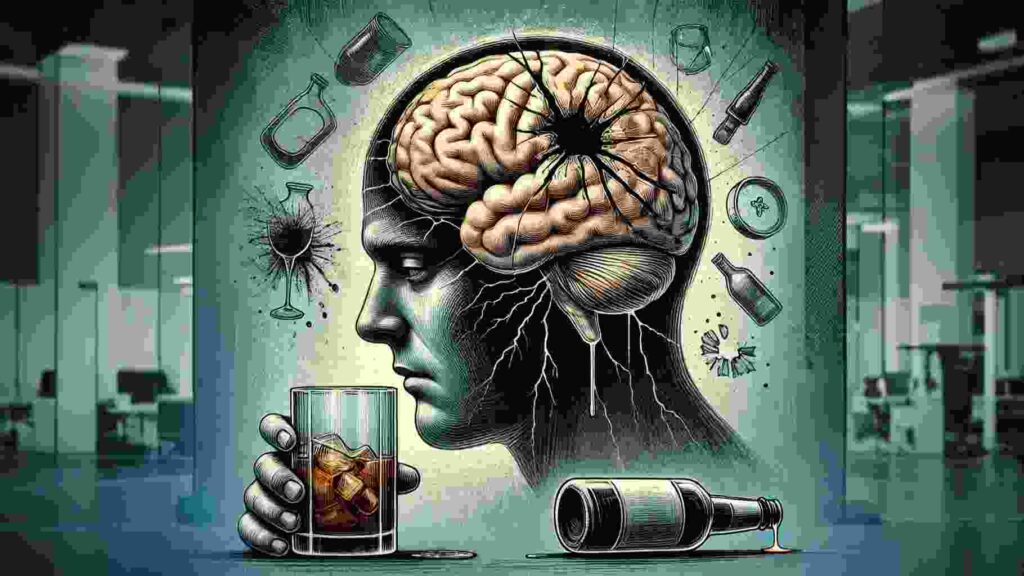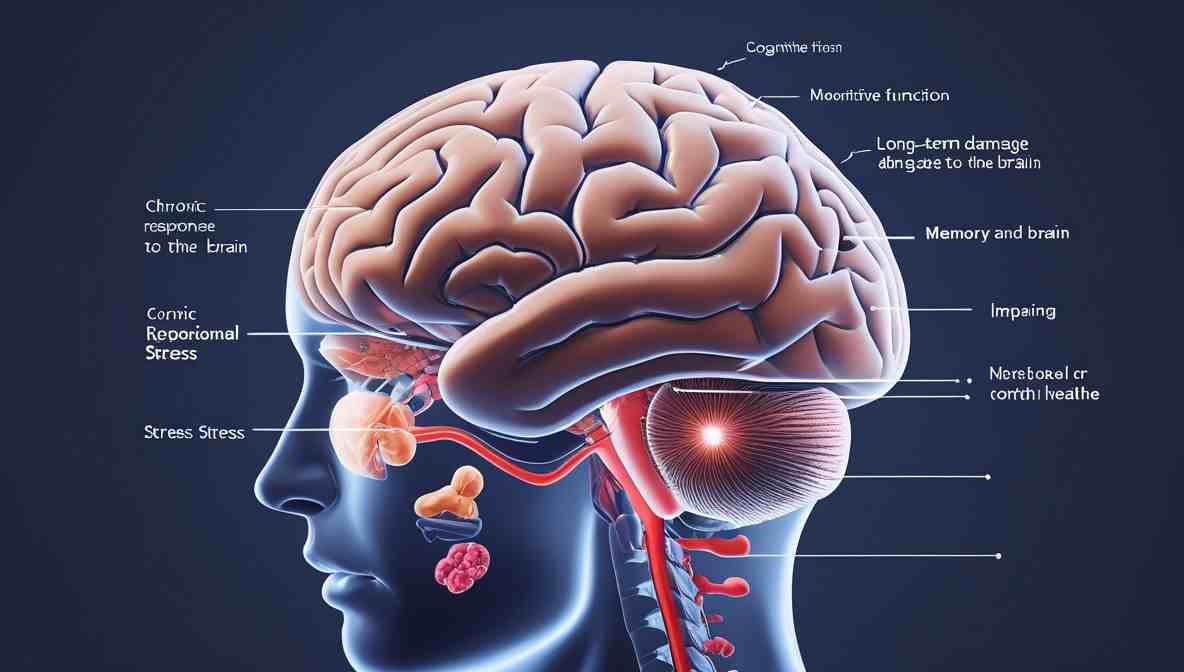11 Bad Habits That Damage Your Brain: Our brain is an incredibly complex and vital organ that controls every aspect of our lives. From basic functions like breathing to intricate tasks like solving a math problem, the brain is responsible for it all. However, many of us unknowingly engage in habits that can impair its function over time, affecting our cognitive abilities, memory, and overall mental health.
In this article, we’ll explore 11 bad habits that can damage your brain and provide insights into how to break them to ensure a healthier brain in the long run.
Follow Google News to get the latest news on Juger Alo.
11 Bad Habits That Damage Your Brain
1. Lack of Sleep
Sleep is essential for brain health. During sleep, the brain clears out toxins and strengthens connections between neurons, which aids in learning and memory. A consistent lack of sleep can disrupt these processes and increase the risk of developing neurodegenerative diseases like Alzheimer’s.
Why It’s Harmful: Chronic sleep deprivation can lead to cognitive decline, memory problems, and a lack of focus. It also impairs the brain’s ability to retain new information and process emotions.
Read More: How to Make $100 a Day on Your Phone for Free: Effective Methods Revealed
Read More
How to Break the Habit: Establish a regular sleep routine, aim for 7-9 hours of sleep each night, and avoid stimulating activities like excessive screen time before bed.

2. Chronic Stress
Stress is a natural response to external pressure, but chronic stress can lead to long-term damage to the brain. Prolonged exposure to stress hormones like cortisol can shrink the hippocampus, the brain region responsible for memory and learning.
Why It’s Harmful: Long-term stress can contribute to anxiety, depression, and other mental health issues, and impair cognitive function over time.
How to Break the Habit: Practice stress management techniques such as meditation, yoga, or deep-breathing exercises. Regular physical activity also helps reduce stress and improve brain health.
3. Poor Diet
The food you eat has a direct impact on your brain’s health. Diets high in processed foods, sugars, and unhealthy fats can promote inflammation and oxidative stress, leading to cognitive decline.
Why It’s Harmful: A poor diet can impair brain function and contribute to conditions like depression, anxiety, and memory problems. Lack of essential nutrients like omega-3 fatty acids, vitamins, and antioxidants can further affect cognitive performance.
Read More: Earn Online From Home: 10 Easy Ways
How to Break the Habit: Incorporate brain-boosting foods such as leafy greens, fatty fish, berries, and nuts into your diet. Reduce your intake of processed foods, sugars, and unhealthy fats to promote optimal brain health.
4. Lack of Mental Stimulation
Just like physical exercise, the brain needs regular stimulation to stay sharp. Engaging in mentally stimulating activities such as reading, puzzles, or learning new skills helps keep the brain active and healthy.
Why It’s Harmful: Failing to engage in mentally challenging activities can lead to cognitive stagnation, making it more difficult to concentrate and retain information.
How to Break the Habit: Engage in activities that challenge your brain, such as learning a new language, solving puzzles, or reading books that require focus and critical thinking.
5. Excessive Alcohol Consumption
While moderate alcohol consumption may not have significant negative effects on the brain, excessive drinking can lead to brain damage, affecting cognitive function, memory, and decision-making abilities.
Why It’s Harmful: Chronic alcohol abuse can cause brain shrinkage, impairing the brain’s ability to function properly. It can also disrupt neurotransmitter balance, leading to mental health problems.
How to Break the Habit: Limit alcohol consumption and aim to drink in moderation. If you find it difficult to cut back, seek professional help or join a support group.
6. Smoking
Smoking is known to harm nearly every organ in the body, and the brain is no exception. The chemicals in cigarette smoke can reduce blood flow to the brain, impairing cognitive function and increasing the risk of strokes and dementia.
Why It’s Harmful: Smoking accelerates brain aging, leading to memory problems, reduced cognitive abilities, and an increased risk of developing Alzheimer’s disease.
How to Break the Habit: Seek support from smoking cessation programs, use nicotine replacement therapy, or engage in activities that help reduce cravings.

7. Sedentary Lifestyle
Physical activity isn’t just good for your body—it’s also vital for your brain. A sedentary lifestyle can lead to poor circulation, lower brain plasticity, and increased risks of cognitive decline and dementia.
Why It’s Harmful: A lack of exercise contributes to poor circulation, which reduces the amount of oxygen and nutrients reaching the brain, affecting cognitive function.
How to Break the Habit: Engage in regular physical exercise, such as walking, swimming, or jogging. Aim for at least 150 minutes of moderate-intensity exercise per week.
8. Multitasking
While multitasking may seem productive, it can actually impair cognitive performance. The brain is not designed to handle multiple tasks at once, and switching between tasks can cause a decline in performance and mental fatigue.
Why It’s Harmful: Multitasking reduces efficiency, decreases focus, and impairs memory consolidation, which can lead to cognitive overload and stress.
How to Break the Habit: Focus on one task at a time to increase efficiency and reduce mental fatigue. Use tools like to-do lists or time-blocking to manage tasks more effectively.
9. Negative Thinking
Constant negative thoughts can take a toll on your mental health and brain function. Negative thinking patterns can increase stress, reduce problem-solving abilities, and impair cognitive performance.
Why It’s Harmful: Chronic negativity can contribute to depression and anxiety, both of which have been shown to affect the brain’s structure and function over time.
How to Break the Habit: Practice mindfulness and cognitive-behavioral techniques to reframe negative thoughts and focus on positive aspects of life. Engage in activities that promote a positive mindset, such as journaling or gratitude exercises.
10. Ignoring Mental Health
Mental health is just as important as physical health, yet many people ignore the signs of mental distress. Neglecting mental health problems like anxiety, depression, or chronic stress can lead to cognitive decline and other long-term brain issues.
Why It’s Harmful: Untreated mental health issues can lead to brain shrinkage, memory impairment, and difficulty concentrating. They can also contribute to emotional and behavioral problems.
How to Break the Habit: Seek professional help if you experience symptoms of mental health problems. Practice self-care, engage in social activities, and prioritize your emotional well-being.

11. Excessive Screen Time
With the rise of digital technology, many of us spend hours each day in front of screens, whether it’s for work, entertainment, or socializing. Excessive screen time can negatively impact brain function, sleep, and overall mental health.
Why It’s Harmful: Excessive screen time can contribute to eye strain, disrupted sleep, and reduced cognitive function. It also encourages sedentary behavior and can increase stress.
How to Break the Habit: Set limits on screen time and take regular breaks. Engage in offline activities, such as reading or exercising, to give your brain a break from digital overload.
Conclusion
Your brain is your most valuable asset, and it’s essential to treat it with care. The habits we form today can have a lasting impact on our cognitive health, both in the short term and as we age. By making small changes in your daily routine, such as getting more sleep, managing stress, eating a balanced diet, and staying mentally and physically active, you can help ensure your brain stays sharp for years to come.
Breaking bad habits and replacing them with healthier alternatives isn’t easy, but the payoff is well worth the effort. With the right mindset and commitment, you can create a brain-friendly lifestyle that fosters long-term cognitive health.



